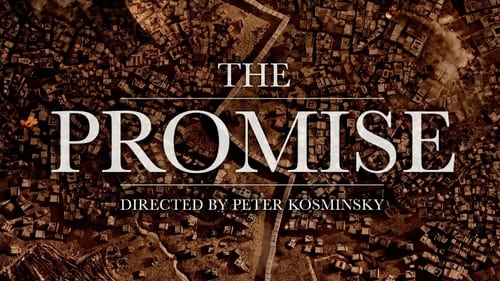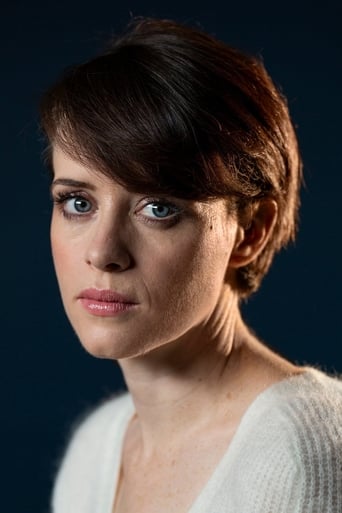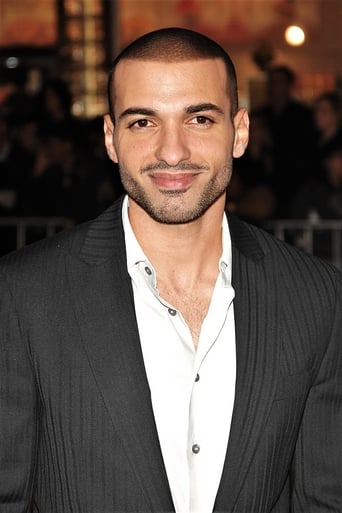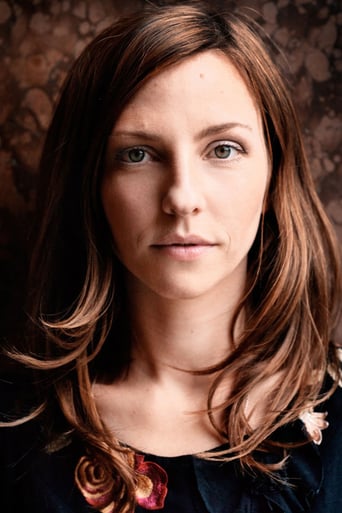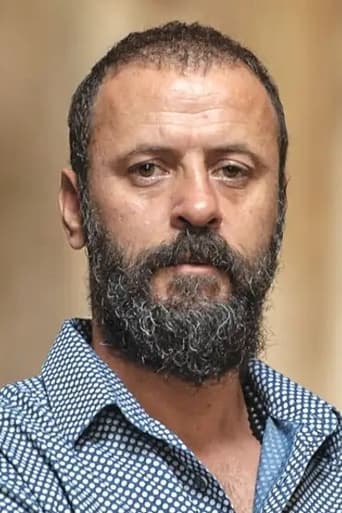buiger
Very good, finally a fairly balanced attempt at depicting the middle- eastern problem. I very much appreciated the fact that the movie tried to remain rather unbiased (except toward the end, where it went a little over the top with showing the brutality of the IDF and excessively victimizing the Palestinians). The two story lines make it possible to show at the same time both the current situation as well as the original creation of the problem, its roots. Great idea!All in all, some good acting, good cinematography and decent, clear dialog (especially for a made-for-TV flick). If anything is lacking its a good musical score, but it doesn't take away much from the movie. I can only recommend this movie to all. Most will learn a lot by watching it, and it will make many think again about the preconceptions they have about this issue, mostly due to ignorance and misinformation in the media.
TravelJunkie23
This is the most biased and hate filled series that has ever disgraced televisions and computers.The series' thin attempt at remaining impartial in a complicated conflict only demonizes Israelis. I believe it to be the worst example of anti-Israel propaganda that's ever seen on television.Every Palestinian is portrayed as a victim, ever Israeli as their callous oppressors. I understand that this is a mini-series not a documentary, but depicting a situation the way the director and production staff has done only adds fuel to an already warm fire. If you have had the misfortune of watching this film, please research your facts properly.
elis-perach
I was utterly appalled at the historical distortion, bias, and horrible demonization of Israel, made by 'The Promise'. Admittedly, I only watched the last episode, so it is possible that the previous ones were more balanced, but that wouldn't make things better. In this episode the Jews are portrayed as blood-thirsty, murderous brutes, who upon withdrawal of the British mandate army, relentlessly kill defenseless and peace-loving Arab civilians, including women and children. The mighty "Jewish army" is so vicious, that even the cute family puppy-dog must be put to death to avoid a more cruel end had it fallen into their monstrous hands (bringing the soft-hearted viewer into tears)! The fact is that the Arab Higher Committee, supported by the Arab League, rejected the UN plan for partitioning mandatory Palestine even before the assembly had voted on it. The very next day following the UN voting (November 30th 1947), the local Arabs, backed by militias and armies from nearby countries, attacked the Jewish population wherever it could. The Jewish forces were defensive, trying to protect and deliver supplies to secluded Jewish towns besieged by Arab forces. In fact, things seemed so grim for the Jewish population, that in March 1948 the UN discussed proposals to withdraw from the partition plan and establish a trustee-mandate instead. So, it was the Arabs who killed Jewish civilians at that stage of the war (approx. 2,700 Jewish civilians were killed), and not the other way around, as shown in 'The Promise'. It wasn't until April 1948 that the Jewish forces became the initiating party, after the defeat of the local Arab forces. That's when some of the Arab population fled for the fear of the Jewish forces. The Grand Invasion of the Arab armies came shortly afterwards, on May 14th 1948, and only then the "Jewish army" -the IDF, was formed. In the parallel plot, which takes place around the present time, the heroine ('Erin') manages to infiltrate into Gaza, and arrives to the home of a terrorist, who recently murdered several Israelis by suicide-bombing. The close family sits there and mourns quietly. In reality, there is nothing quiet and homely about it. The terrorist organization affiliated with the murderer takes custody over the event, putting up their flags and slogans and praising the acts of the "martyr". In Gaza, civilians often spontaneously celebrate "successful" suicide bombings, and give out candy to the public. Throughout that episode, all the main characters criticize the Israeli "policy", including the Israeli soldier, 'Paul' (acted by the extreme left-wing activist Itay Tiran). When considering screen time, only a few second were dedicated to the misdoings of Palestinians, e.g., Erin reads a news report about suicide bombing, shots are fired at soldiers in Hebron. However, in the rest of the 90 minutes, the viewer experiences the conflict entirely through the eyes of the Palestinians. This is as far as it can be from "balanced". To further accentuate the differences between the Jewish population and the "oppressed" Palestinian population, Erin's parents live in an amazing villa (if not a palace) with a pond in their huge back yard. As she leaves and looks through the taxi window, the camera focuses on many other extravagant villas, contrasting the poverty of Gaza, which was captured in the previous scene. The fact is that the shots of these houses were taken in the most prestigious part of the country, occupied by the wealthiest percentile - It most certainly does not represent the way Israelis live. And by the way, there are villas even in Gaza… So why am I being so petty? Why ruin a good story with truths and facts? The real problem is that movies like this are being broadcast to millions of people, who have no significant knowledge of the conflict and its history. Their concepts and views are therefore shaped by what they see. Some of them may develop a more forgiving, or even supportive approach towards terrorist organizations that act against Israel. The public view may in turn affect these organizations, by allowing them to morally strengthen their belief in their cause, and recruit more members and resources. Eventually, it translates into blood. To summarize my review: Credibility of the story: poor. Acting: exaggerated. Adhesion to historic facts: negative 10.
Cmbh
I very much enjoyed parts of the Promise, but thought a great deal of it was basically crap.The immediate post war aftermath in Palestine is a very good setting for a film/TV series and is a little known period in history for the general public. I thought the story set there was very compelling, with a good protagonist and remained balanced until the final episode.In contrast the framing device of the girl reading her grandfather's diary was poorly constructed and meant we had to spend far too much time in the company of a girl whose only expression was a sullen pout. At times this became absolutely ludicrous, like her reason for wanting to visit Hebron 'to see how her grandfather's story turned out'. It's not that big a diary, unless you are the world's slowest reader you could read it cover to cover in a few hours. It was also a far less balanced story, with characters presenting as fact only one side of deeply controversial issues. Take the security barrier, condemned as useless for security reasons, and yet suicide bombings plummeted after its construction.Talking about bias, we then come to the final episode, which presented the start of the arab-israeli war of 1948 as purely of poor helpless Arabs being slaughtered by Israelis. Both sides committed atrocities against civilians in the build up to the war and the war itself saw 2,400 Jewish civilians lose their lives. A far more interesting story might how a militia of only 30,000 Jews (at the start of the war) held back the armies of the Arab world.In conclusion a good historical drama let down by its bias and framing device.

